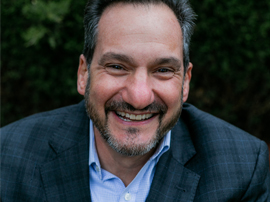
Matt Wasserman
Planning your fundraising goals when a new fiscal year approaches can be intimidating. We repeatedly hear questions about prioritizing what people, resources, systems, and more need attention and support.
At MPW, we always recommend basing your next steps on what can realistically be achieved for the year based on development resources, leading indicators of donor engagement, last year’s results, and information available about your organization and donors. All while keeping an eye on broader giving trends.
This holistic, data-driven approach will provide your organization with the push to level up in fundraising while ensuring your goals are attainable with the talent and resources on hand! We recommend pulling information from surveys, portfolio management, and contact reports, providing data and multi-year trends, your leadership and team’s perspectives, and other touch points.
What to Look For…
Donor Insights
- Who increased, dropped off, or didn’t give their usual annual gift to your organization last year? What are your annual retention and acquisition rates over the last few years? How does your last year compare?
- Conduct a donor screen of recent donors to analyze for major giving prospects.
- Review portfolios and quantify your relationships with donors. How many are in the identification stage and cultivation stage?
- How many asks are in the pipeline, and at what amounts for the upcoming year? How many donors are considering asks, and at what amounts? When will they decide?
- What is your best resource opportunity for increasing fundraising revenue? Did your gifts mostly come from individuals? Or, did foundations and corporations pull most of the weight last year? Consider what operations or staff need support to cultivate one or more of these areas.
- Are you promoting complex gifts such as gifts of stock, estate gifts, life insurance, 401(k)s, or gifts of property? If so, can your organization easily process these gifts, or do you need assistance from a community foundation? How many of your major and annual donors are giving via DAFs?
Effective Communication
- What information did you share (either through campaigns or in one-on-one meetings) that motivated your donors the most or caught the attention of someone new?
- What visits were most memorable for your donors and resulted in increased engagement of greater giving?
- Do your donors know what your organization’s primary opportunities for investing are?
- Did you use videos throughout the year to tell compelling stories of your impact, your donors, and those who benefit from philanthropy at your organization? Does your communication showcase the diversity in all previously mentioned?
- Are you leveraging technology to understand donor behavior and building deeper engagement through email, social media, texts, and other communication channels?
Opportunities for Investment
- Are you allowing your donors to genuinely impact your work or take it to a higher level?
- Are you appealing to major gift prospects who ask for transformative gifts while creating meaningful opportunities to give to various impactful areas throughout the year?
- Do you know why donors are drawn to your organization and what your current donors are most interested in when investing in your organization? Do you know if they are ready to give at a greater level?
- Put yourself in the donor’s shoes: If you were visiting your giving page or sitting down for an ask, would you be excited about the impact your giving could make?
Team Capacities & Needs
- Does your team have the time, talent, and resources to meet the goals you set for them? The best way to find out is to ask directly what they need to thrive in your organization.
- What do your teams’ portfolios look like at this point? Will those who manage a portfolio have enough qualified prospects moving into the ask stage during the upcoming year to meet your organization’s goals?
- Is your organization focused on utilizing leading indicators (number of visits, asks, portfolio moves, and other interactions) as performance measurements instead of lagging indicators (dollars raised)?
- Is your board responsive to your fundraising team’s requests for support in donor relations, committee work, and other areas?
Budget & Projections
- Did your organization’s expenses and revenue end the year trending in the direction you anticipated?
- As always, keep the biggest question front and center: Do your budget and expense revenue align with your organization’s strategic direction and goals?
- Are your projections for growth attainable with your organization’s resources? As mentioned above, the assurance you need for success lies in your team’s ability to reach the benchmarks you set.
- Are your budget and fundraising projections easily communicated to leadership and digestible at board meetings? While your team needs a detailed budget, we recommend keeping your goals succinct when sharing with leadership.
Peer Review & Trends
- Whether you’re a member of a local or national association or wonder what organizations like yours are doing, we strongly emphasize keeping a pulse on what challenges and successes your peers are facing.
- Do you have contacts in this network whom you can call for advice or perspective? Connecting with fellow fundraisers, primarily in organizations similar to your own, is a great way to benchmark your progress and understand what steps you may need to take.
- Are you aware of more significant philanthropic, economic, and other trends related to fundraising? Our favorite resources for staying abreast are The Chronicle of Philanthropy, The New York Times, The Wall Street Journal, and The Economist.
How to Use What You Find
When sitting down to chart your course, we suggest reflecting on your big wins from the last year. Within all that you find, what are three things you believe are huge successes? Perhaps a donor relayed how inspired they were to make a significant gift or how a particular story of impact moved them, or perhaps you retained a higher percentage of donors.
Once you’ve appropriately celebrated your success, ask yourself (and your team, including leadership!) some big-picture questions:
- How can the upcoming year’s fundraising work best serve your organization’s long-term goals and strategic plans?
- What can you qualify as ambitious and realistic goals for your organization now?
- Can you define both your wants and needs to improve your fundraising?
After identifying your most significant needs, examine how your systems and staff currently support growth in those areas. We recommend focusing on two to three areas of profound improvement per year. Remember, not everything in your organization may need to change; only so much can change yearly.
Once you have your focus areas, you have direction to orient your staff, board, committees, and higher-ups. You can “work backward” to complete actionable steps toward your goals. These actions become your leading indicators that fill your reporting out to the groups we just mentioned – measurements that help forecast fundraising revenue and educate your team on what it takes to meet your development goals.



